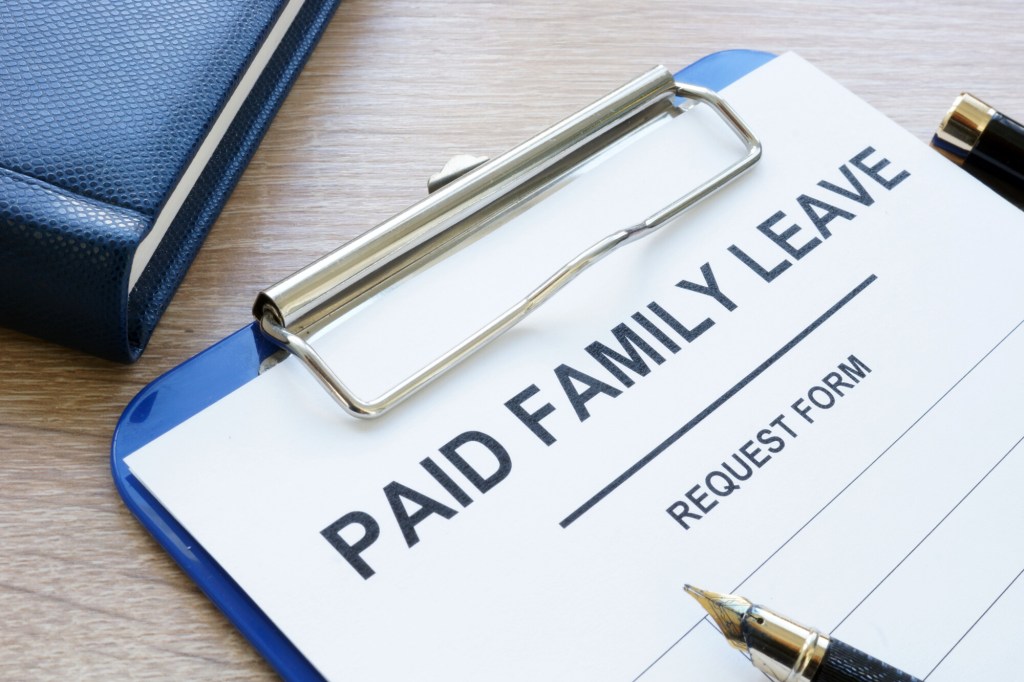Nearly a year after Maine lawmakers and the Mills administration passed the Paid Family Leave Act, state regulators have proposed detailed rules to implement the program's new payroll taxes and benefits.
But a representative for the Maine Chamber of Commerce took issue with some of the ways the law would operate under the proposed rules, saying employers who ultimately want to opt out of the program by offering their own paid leave benefits would have to pay into the fund for the first 16 months.
The rule was released this week by the Maine Department of Labor, and the public has until July 8th to comment and suggest changes.


Patrick Woodcock, president and CEO of the Maine Chamber of Commerce; Mark J. Ellis
The state plans to begin collecting payroll taxes starting Jan. 1, 2025, to build up a fund that will be used to pay workers eligible for paid leave. Under this program, benefits to workers will not begin until May 2026.
“This is the most important regulatory bill for the business community in decades,” said Patrick Woodcock, president and CEO of the Maine Chamber of Commerce.
The law imposes a 1% payroll tax to be split equally between workers and employers to provide paid family leave benefits to eligible workers. The program will pay up to 90% of regular wages for up to 12 weeks for a variety of reasons, including workers who are sick or need to care for a newborn or other family members.
Employers with 15 or fewer employees are exempt from paying into the program, but employees are still eligible for benefits and must pay 0.5% of their wages into the program.
Mr Woodcock said large companies could opt out of the state scheme if they offered equivalent private paid leave benefits, but the withdrawal provisions were part of the rules that needed to be improved.
He said that as proposed, companies would have to join the scheme from Jan. 1, 2025, but would not be able to opt out until May 2026, when employee benefits are due. That would provide no incentive for employers to develop private schemes in the meantime, he noted.
“Having to meet this new obligation will not encourage the development of private marketplaces,” Woodcock said.
He said Maine could follow in the footsteps of other states that have introduced paid family leave, such as New York and Massachusetts, and reduce tax liability if employers are willing to offer equivalent benefits to employees. He said they should be able to opt out at the start of the program.
But Kate Blackford, director of public policy for the Maine People's Alliance, a liberal group that supports the law, said the proposed opt-out rules for private plans would help build up the reserves needed to run the programs. It said it was necessary for “capital solvency.” . Congress approved him $25 million in start-up funding, which will be funded through payroll taxes and will cover the cost of the benefits in the long run.
“We don't know if companies will actually opt out until they actually opt out. It's unfair that many employers opt out and don't pay for a year and then participate in the state program.” said Blackford.
She also said the criteria for eligible private plans have not yet been finalized. Until that is finalized in 2025, there is no way to determine which existing or future plans will be considered equivalent to the state program.
Blackford said the proposed rules would likely work well in Maine.
“Upon initial reading, I found the rule to be thoughtful, practical and consistent with the intent of the law,” Blackford said.
Sen. Mattie Daughtry (D-Brunswick), who co-sponsored the bill with state Rep. Kristen Cloutier (D-Lewiston), said one of the main goals of the rule is to “make the law work for everybody,” including the interests of employers and employees. Daughtry said the intent of the law is to make it less onerous for businesses to implement and for workers to claim benefits.
“Accessibility, affordability and simplicity were key tenets,” said Daughtry, co-owner of Moderation Brewing Co. in Brunswick.
Maine is one of 13 states and the District of Columbia that have enacted paid family and medical leave. The federal government approved an unpaid leave program in the 1990s, allowing workers to take up to three months of unpaid leave.
To comment on the proposed rulemaking, visit www.maine.gov/labor/rulemaking .
Copy story link
” previous
Report alleges former Maine Turnpike executive threatened employees for years
Related article



Invalid username/password.
Please check your email to confirm and complete your registration.
To reset your password, please use the form below. After submitting your account email address, you will receive an email with a reset code.